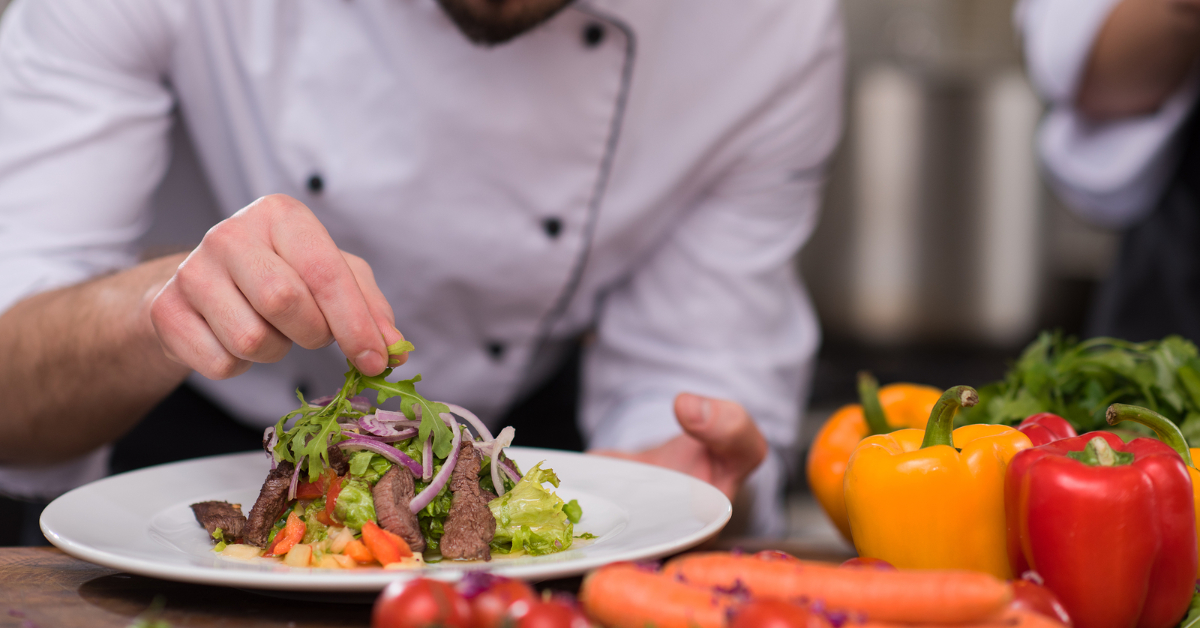
Controlling costs is essential for effectively managing foodservice operations. Even if restaurants are generating tons of business, costs can quickly chip away at their bottom line if they’re not carefully tracking them. And, while monitoring costs is important, restaurants can’t stop there. For business to thrive, they need to evaluate success metrics, or key performance indicators (KPIs). By setting and measuring KPIs, foodservice professionals can evaluate operations and adjust as needed to increase profitability. To keep business in tip-top shape and ensure continued success, here are five metrics every foodservice professional must track.
1) Cost of Goods Sold
Cost of goods sold (COGS) refers to the cost required to create all food and beverage items sold to customers in a given time period. Since it’s typically the biggest expense in foodservice, COGS is one of the most important metrics to track. By paying attention to COGS, restaurants can identify ways to minimize them, such as negotiating lower rates with food distributors, or finding in-season ingredients. If they cut down on COGS, restaurants can increase their gross profit margin, which brings us to our next must-track metric.
2) Gross profit margin
Gross profit margin is one of the most basic ways to measure profitability. It represents profit after accounting for COGS, and the money available to cover operating expenses. In a business with notoriously thin margins, it’s critical for restaurants to watch their gross profit margin closely to ensure they have a healthy amount of revenue to put toward expenses each month — while still turning a profit. To figure out their gross profit margin, restaurants can take their total monthly revenue minus their COGS.
3) Menu item profitability
Strategic pricing and placement of menu items, also known as menu engineering, is fundamental to the success of any restaurant. Before restaurants can do this though, they need to figure out the profitability and popularity of each menu item. First, they’ll need to know the food and purchasing costs (e.g., delivery and fees) to figure out profit margins on each menu item. Then, their point-of-sale (POS) system will indicate how well each of those items are selling, and which menu items are yielding the biggest return. Once they’ve established which items are the most profitable, and the most popular, they can maximize revenue by marking up these items and promoting them accordingly.
4) Production time per dish
This is essential to know, as it represents the actual value of each dish based on turnaround time. Of course restaurants want to keep popular items on the menu, but it’s also important to track production time to maximize profitability. Restaurants must track how long it takes to prepare menu items, and consider ways to expedite cooking, such as more efficient equipment. If certain dishes take too long to prepare, it might not be worthwhile to keep them on the menu. On the other hand, if menu items are quick to produce, but rarely ordered, they might not have a place on the menu either. Eliminating those menu items will give kitchen staff more time to devote to in-demand menu items. Restaurants should evaluate each menu item’s production time, along with their popularity, to ensure they have the most profitable menu possible.
5) Food wasted per food purchased
With food waste at an all-time high — nearly one-third of all food is wasted each year — it’s no surprise foodservice professionals are taking measures to reduce it. By closely monitoring food waste, restaurants can come up with food waste reduction methods, such as more effective storage or portion size reductions. Not only that, but it will provide valuable insights needed to improve inventory forecasting, save on costs, and maximize profitability.
Don’t underestimate the right equipment.
If foodservice professionals use these benchmarks for success, they can fine-tune operations and increase profitability. And, as they’re evaluating operations, they shouldn’t underestimate how efficient equipment can maximize output. Hear from other customers on how Ovention can maximize speed while delivering the utmost in quality
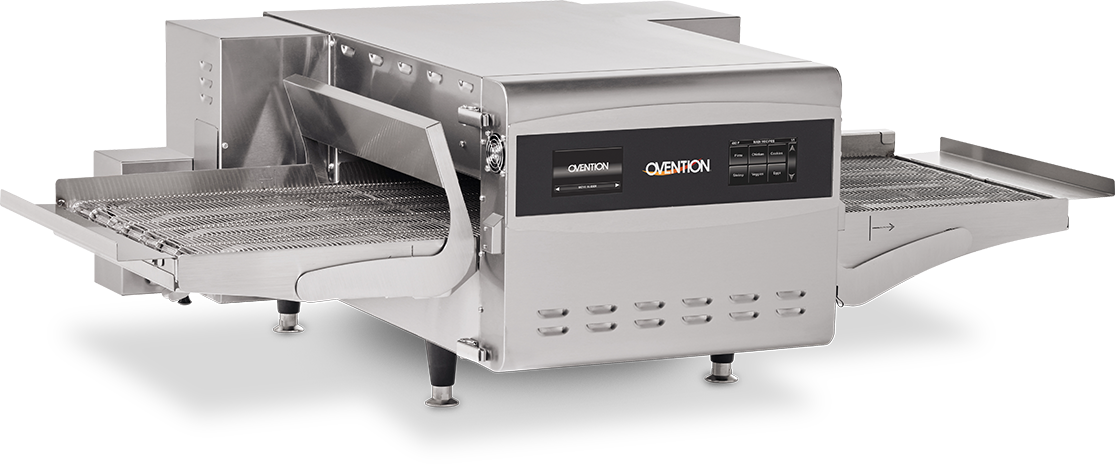
If you value precision and volume, Ovention has the perfect oven to fit your operation. The Shuttle sets the new standard for conveyor ovens everywhere. No other oven can operate as both a conveyor and a closed-cavity oven.
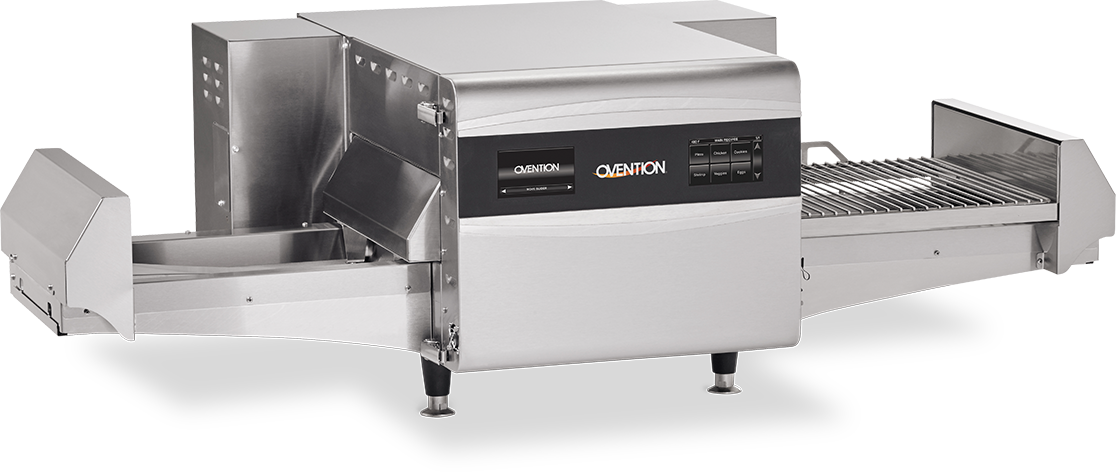
Cook a full menu of delicious offerings without an oven hood. The Ovention Matchbox 1718/1313 takes the traditional conveyor oven to a whole new level.
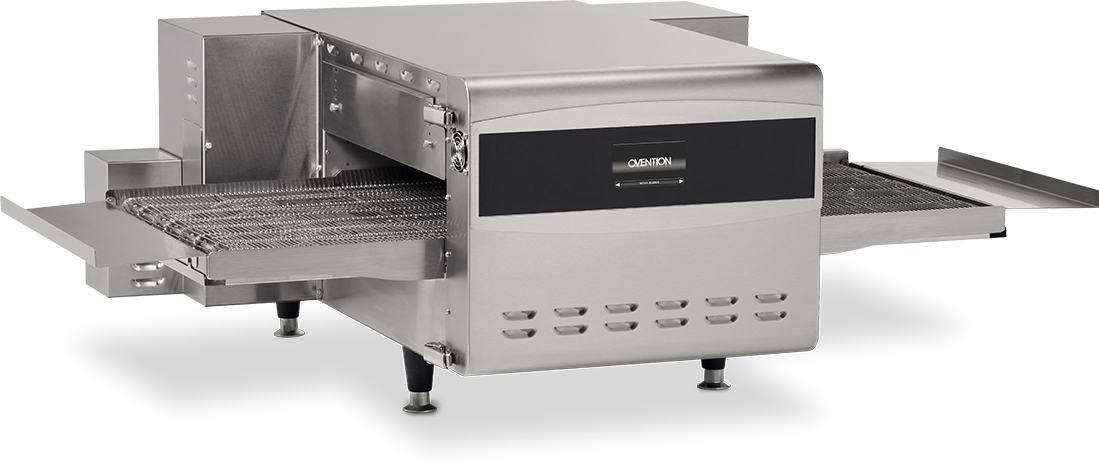
Simple, smart and the right fit for operators looking for a high-throughput conveyor oven. The Ovention Conveyor Oven is the most technologically elegant and operator-friendly conveyor on the market today.
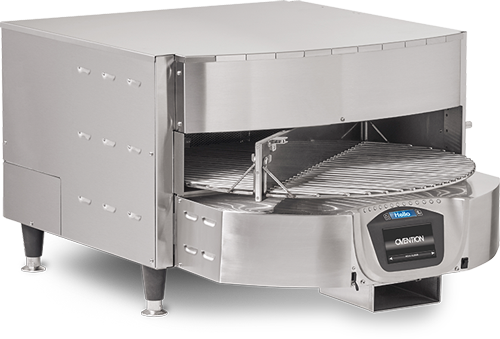
Cook a full menu better, faster, and easier. The Ovention Matchbox M360 has Precision Impingement® technology, a unique cooking carousel, and a small footprint, making it the perfect fit for any operation.
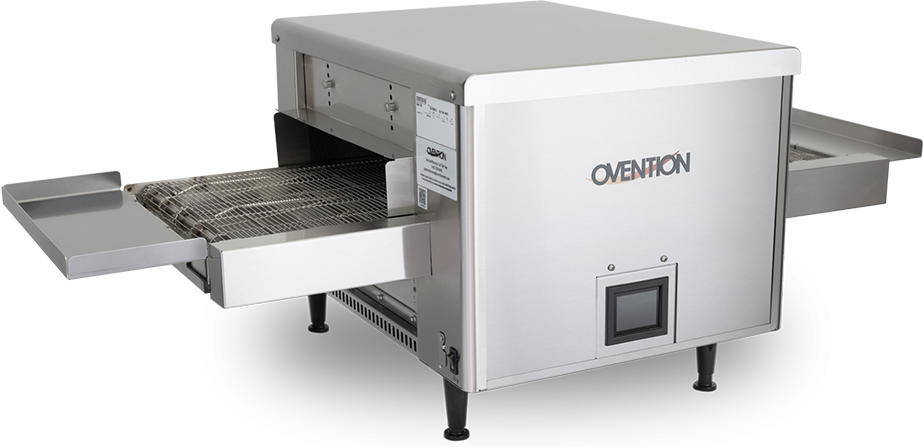
Finish your plates with ease and precision with this robust IR finishing conveyor. Melt, sear, toast, and finish to perfection with this operator-friendly, quiet conveyor.
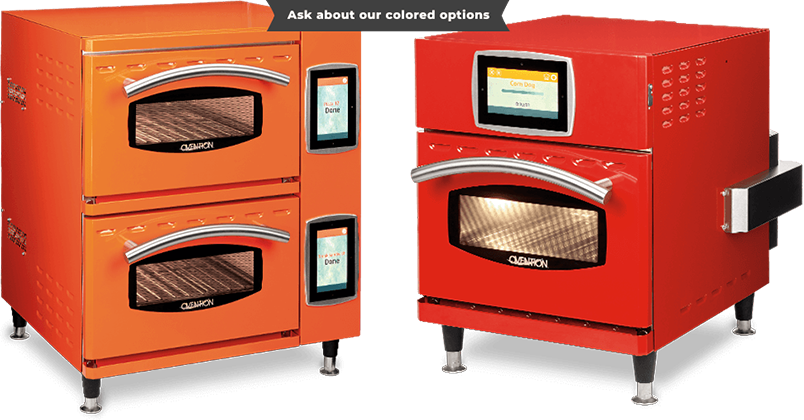
Revolutionary infusion of Linear Impingement and Infrared (IR) technologies. Independently controlled top and bottom cavities, each with its own interior light and control panel.
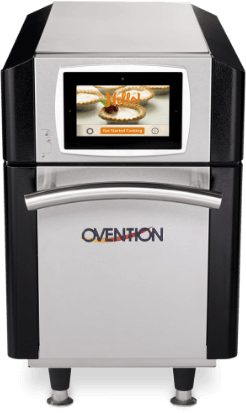
Introducing MiSA; Microwave Speed Assist. Higher quality, higher speed, smaller footprint.
Ventless ovens are often defined by what they don’t require: a hood, ductwork, or a major build-out. But that only […]
Speed of service is not just a front-of-house concern. It is one of the strongest revenue drivers in a foodservice […]
Used plates pass through your kitchen all day long, often without a second glance. But each one carries quiet feedback […]
Our goal is to partner with you to help you build your business. We will set up a demonstration that suits your needs, whether you want us to cook your current product, show you a range of new products, or do a side-by-side comparison with another oven we are ready to show you what Ovention can do.
Please complete ALL the fields below to schedule a demo.*
Scroll down to discover more
Experience an Ovention oven in action. We have test kitchens all across the country and representatives waiting to demonstrate our award-winning technology and ease of use. Contact us today to learn how one of our ovens can elevate your culinary versatility and build your business.

Cooked with Conveyor 2600/2000